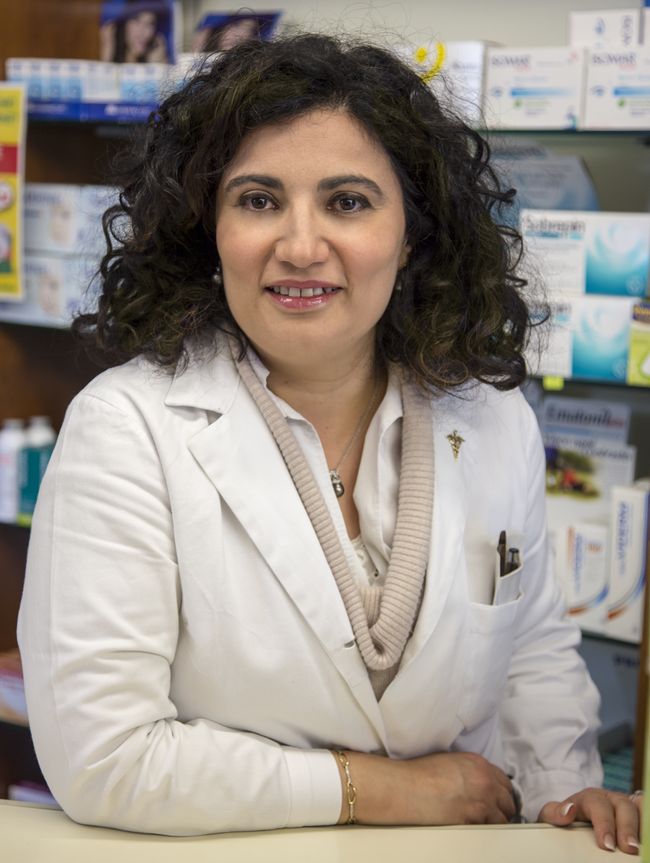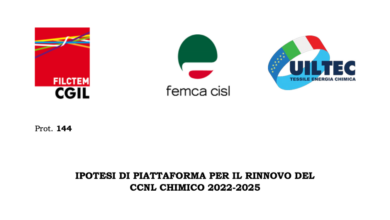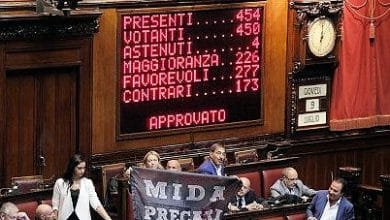
The essence and competence of each profession must be respected, otherwise the citizen's health is at risk.
Thursday, 18 December 2014 – Pharmacist33
 Centrality of the patient, humanization of care, process of territorialization are phenomena that can lead to a rethinking and an expansion of the functions of the various figures operating in the pharmaceutical and healthcare assistance chain, but in this path it is necessary to respect the essence and the competence of every profession, otherwise the citizen's health is at risk.
Centrality of the patient, humanization of care, process of territorialization are phenomena that can lead to a rethinking and an expansion of the functions of the various figures operating in the pharmaceutical and healthcare assistance chain, but in this path it is necessary to respect the essence and the competence of every profession, otherwise the citizen's health is at risk.
It is with these words that Pia Policicchio (photo), president Fenagifar, is part of the debate raised by the proposal made by Nursind, the nurses' union, contained in the observations sent to the Ministry of Health on the draft bill on the management and development of human resources of the NHS in implementation of art. 22 of the Pact for Health, to give nurses the possibility to prescribe «certain aids, diagnostic tests and medicines in common».
«Each professional figure has its own competence and its course of study and training» is Policicchio's comment «while this proposal by nurses seems to go beyond the competences of other professionals. The prescription can only be from the doctor, who has in-depth knowledge of the pathology and therapy and is able to carry out a certain diagnostic and therapeutic path. Just as elements of the pharmacist's activity can be pharmaceutical care, and so on».
 Given the great pharmacological competence of the pharmacist, «we could also discuss his possibility of prescribing a certain category of drugs in certain cases but naturally in sharing, in full respect of all professionalism and in the face of a precise training course that would develop further and in this direction its competences.
Given the great pharmacological competence of the pharmacist, «we could also discuss his possibility of prescribing a certain category of drugs in certain cases but naturally in sharing, in full respect of all professionalism and in the face of a precise training course that would develop further and in this direction its competences.
I am thinking, for example, of the experience of the clinical pharmacist: even in community pharmacies there are a series of minor minor pathologies which could also be managed, from this point of view, by the pharmacist. And the rationale may be to help decongest doctors' surgeries and perhaps reduce improper emergency room access in some cases. But of course these are extremely delicate paths, in which the health of the citizen must be the guide and in which close attention must be paid to the specific skills of all professionals".
Frances Giani
General medicine and prescriptive appropriateness. Pani (Aifa): "The keystone is the sharing of approaches"
The prescriptive act is the right and duty of the doctor who undertakes his own professional and ethical responsibility and cannot disregard a detailed diagnosis". The Dg takes stock of ainterview with Fimmg news on the status and prospects of the 'Therapeutic Plans Experimental Project in General Medicine'. “For MG, the challenge of the future will be the personalization of care”. And then he recalls: "General practitioners have a central role in the drug system".
 17 DEC - "Sharing approaches is certainly the keystone" in terms of prescriptive appropriateness and economic sustainability. This is what the Aifa General Manager affirms Luke Pani in an interview given to Fimmg news regarding the status and prospects of the 'Therapeutic Plans Experimentation Project in General Medicine' for which "after having identified the areas and implemented the access system, we will think about producing guidelines as we have already done for other areas, for example monitoring logs”. “There was a fair amount of participation – underlined the General Manager – in terms of adherence and interest of both young and slightly older doctors. I believe that the number to date is in any case satisfactory and will certainly allow the start of the pilot project. Only at the end of the project will we be able to evaluate whether the approach can be considered positive”.
17 DEC - "Sharing approaches is certainly the keystone" in terms of prescriptive appropriateness and economic sustainability. This is what the Aifa General Manager affirms Luke Pani in an interview given to Fimmg news regarding the status and prospects of the 'Therapeutic Plans Experimentation Project in General Medicine' for which "after having identified the areas and implemented the access system, we will think about producing guidelines as we have already done for other areas, for example monitoring logs”. “There was a fair amount of participation – underlined the General Manager – in terms of adherence and interest of both young and slightly older doctors. I believe that the number to date is in any case satisfactory and will certainly allow the start of the pilot project. Only at the end of the project will we be able to evaluate whether the approach can be considered positive”.
For Pani “General Medicine has a central role in the drug system and in the health system as a whole. We must not forget that the GP is the first person the patient turns to, and sometimes the only one he truly trusts, who follows the patient throughout the clinical care process. The prescriptive act is the right and duty of the doctor who undertakes his own professional and ethical responsibility and cannot disregard a detailed diagnosis". But it is "essential to remember that some types of medicines are in any case subject to limited prescription, since the diagnosis or administration require that they be carried out in specialist centers or hospitals that have adequate means in order to allow their use in safe conditions".
The Dg Aifa then highlights what the future challenges for general medicine are. “In addition to the physiological changes in the population – he underlines -, there is an approach to medicine that is increasingly directed towards the individual patient. Each person is unique and treatment must consider the specificity of the individual. Precision medicine represents the future of medicine not only in the specialist field but also and above all at a general level".





